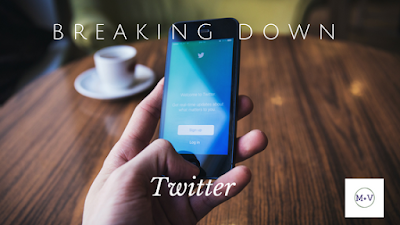Things I Learned by Not Having a Dishwasher
My husband and I closed on our house shortly before our nuptials, and if you haven't struggled to close on a house, move out, move in, and get married all in the same 6 week period, I highly recommend it, it is very stressful.
Anyway, now that we are proud newlywed homeowners, the task of making our house truly livable looms large. Among the other idiosyncrasies of having a real house, our dishwasher does not actually work. Which is to say, it turns on, makes a disturbing amount of noise, and presumably moves water around. What it does not do, however, is meaningfully wash dishes.
Since there is just the two of us, doing the dishes is not that difficult, but it is a chore that must be done, or our small home (and even smaller allotment of horizontal surfaces) is run amok with many supper plates.
While hand-washing dishes today, I learned a few lessons, which I think have very practical applications where marketing is concerned.
1. Use Water Resources Wisely
Now that I pay my own bills, wasting water is insufferably egregious. Rather than run the water while I mindlessly scrub a frying pan, I have learned the much more resourceful method of filling one side of the sink with water and doing my scrubbing, giving everything a rinse off, and setting things aside on a drying rack. I know, these are paramount revelations.
The point is, rather than letting my hot water and money pour down the drain while I learn how to be an adult, I saved more water - and in the end more time and effort - by learning another method. Sometimes the best advantage being more economical with one resource is that you re-learn an old system and find something that is more efficient in another way as well.
2. Most Important Things Are First
My policy is, most important things come first. I always start with the things that come closest to my mouth, followed by the things that are progressively further away, and dirtier. This means doing forks, knives, spoons, and water glasses first, followed by mugs and plates and bowls, with big pots and pans last.
This keeps my water cleanest for the things that come into the closest contact with me, and gets the little clutter out of the way before the big guys come take up my sink.
If you're assessing what needs to be done during the day, start with the most important things. The little forks and spoons of your job need to be done daily, will be an annoying distraction if you stop to take care of them later, and are the kinds of things that hang over your head when they aren't done. Commit and start with those first.
Move on to bigger things, the tasks that need a little more time, that are important but perhaps not dire, and get those taken care of next.
Last, get your big projects done. Chipping away at a big project is one of the only sure ways to get things done. And if the task is too big...
3. The Importance of Soaking
... remember the significance of a good soak. Don't scrub til you're frustrated, soapy and cognitively exhausted. Fill it up with warm water, and set it aside. Your creative brain will thank you for letting it stew on the idea without giving it your direct attention. When you return, you'll be faster, more efficient, and hey, maybe you'll have that solution you've been searching for after all.
4. The Pain of the Bottleneck (Literally)
When you're washing by hand, you realize how useful it would be to have those random accessories your mother had under the sink. If you can't invest in the tool of the trade, find a way to make your own. Make a dishcloth, outsmart that bottleneck, or find a million ways to hack your kitchen.
Making do with what you have is such an important lesson to recall when you're struggling with a real-life bottleneck, but thinking laterally is the real key.
Find a creative way to alleviate the bottleneck. As my dad would say, make your own work-around.
5. Don't Wait Too Long
There is nothing worse that not having what you need when you urgently need it. It may seem like you're getting down to business when you tackle the most current task first, but putting off things that you know are waiting until the last minute can set you up for failure. Crunch-time is never the moment when you want to find out whether past-you was looking out for future-you.
Being the person you want to be in the future starts with being that person today. Don't self-sabotage, stay ahead of the game (and any other cliches that help you to feel motivated.).
Those are the five lessons I learned from hand washing dishes. Remember the lessons of simpler times, and to help you walk without the crutch of modern technology. Or, save up and buy a dishwasher already.



Comments
Post a Comment